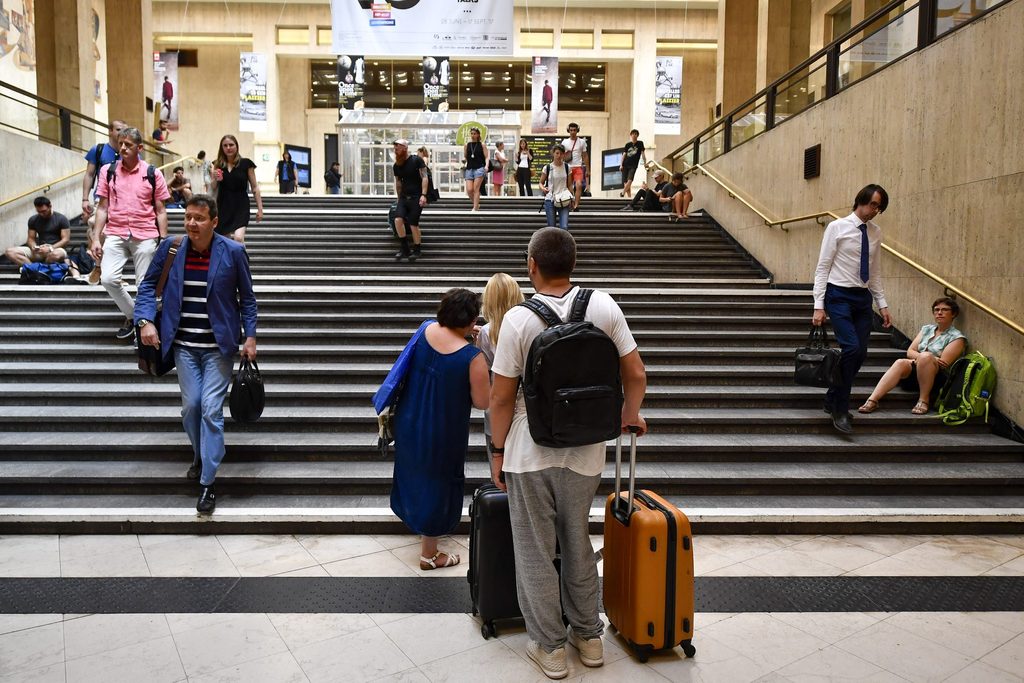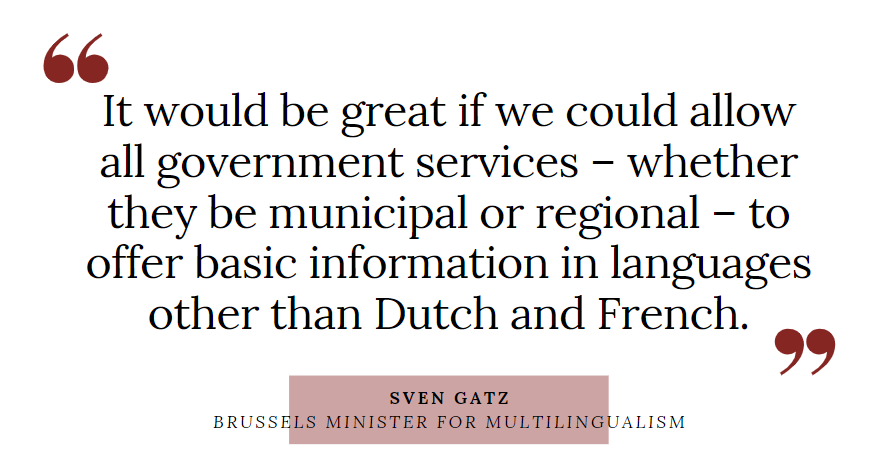With a population in excess of 1.2 million and over 100 languages spoken, Brussels seems to have outgrown Belgium's language laws, which were created 60 years ago. As a result, the Brussels Council for Multilingualism is making the case for a radical overhaul that would diversify the city's official languages – currently just Dutch and French.
The capital's population can no longer be reduced to two clear-cut language communities: a French-speaking majority and a Dutch-speaking minority. As the region's inhabitants well know, Brussels today is home to numerous nationalities that need to be better served. To do so, the dated language rules must be "radically updated", the Council found.
"The aim is to get rid of the current ambiguity of Belgium's language law," Brussels Multilingualism Minister Sven Gatz told The Brussels Times. "Personally, I think we should create a committee to examine the Language Act of 1966: What still works, what needs changing?"
The languages used in administrative processes for all public authorities are defined by law. In Brussels administrations should communicate in (only) the Capital Region's official languages: Dutch and French. "But the Council now stated that this should be adjusted to allow international people living in Brussels to carry out various official procedures in their own language."
Dutch, French, English and... Romanian?
However, this is easier said than done, Brussels Council for Multilingualism acknowledged. "Obviously not every municipality can offer its services in 100 languages. But we can start small," Gatz stated.
Even though English is not (yet) an official language in Brussels, Gatz gave the examples of Schaerbeek accommodating its many non-Belgian residents by also offering its services in English, and the UZ Brussels hospital in Jette offering Dutch, French and English as options at the reception desk while always trying to offer care in the patients' language.
"If you only speak Romanian, they will try to find a staff member who can help you in Romanian. Of course, that is a matter of practical organisation which will not always be possible immediately," Gatz clarified. "But they are trying to make it happen as much as they can."

Credit: Belga
Still, the Council stressed that there is no absolute right for citizens to be helped in their own language (except for Dutch or French) in Belgium. "I think the Schaerbeek model is a good one. It would be great if we could start by allowing all government services – whether they be municipal or regional – to offer basic information in languages other than Dutch and French when needed."
Nonetheless, there would be limits to the scope of this language accommodation: "If you need a more detailed document, such as a building permit, that will still be in French or Dutch. Otherwise, the administrative work will become so complicated that it will simply no longer be workable."
Amending Belgium's language is a federal competence, and the Council calls on the Federal Government to create a robust legal basis to officially make multilingual services possible.
In Schaerbeek, services in English are only provided verbally; its written communication remains strictly in French and Dutch. This puts the municipality in a legal grey zone. In the same vein, Brussels public transport company STIB has been making its announcements in Dutch, French and English for over ten years. "That isn't a problem, but technically, there is no legal basis for this."
The President of the Brussels Council for Multilingualism, Philippe Van Parijs, stressed that the memorandum issued by the Council is not a list of demands. He instead refers to it as "a tool to help make politicians and citizens more aware of the nature and scale of an immense challenge and to think together about the best way to tackle it." He added that progress can only be made through "calm discussion [based on] a solid foundation."
On a regional level, the Council also advised the Flemish Community to rethink its school calendar to limit the loss of language skills over the longer summer holidays. For the Francophone Community, the Council proposed to use various strategies to address the shortage of Dutch teachers, which will increase when Dutch becomes compulsory in Walloon primary schools.
Related News
- Expat Welcome Desk: The one-stop shop for expats looking to understand Belgium
- Rue de la Loi, Wetstraat, Law Street? English may become Brussels' third official language
- Embrace 'bad English' as the European 'lingua franca,' says Timmermans
An annual week of multilingualism should be organised in Brussels to get schools, companies, public institutions and civil society to share knowledge on the simultaneous learning of several languages, promote good practices and get to know the many ways to improve language skills in Brussels.
Transforming these recommendations into actual policy will take some time, but Gatz is confident. "Some organisations are already making efforts to give citizens a greater sense of satisfaction with language services than is currently the case with just the two official national languages."
The full memorandum and the Council's 36 recommendations can be downloaded in French or Dutch via the website www.betalky.brussels.


